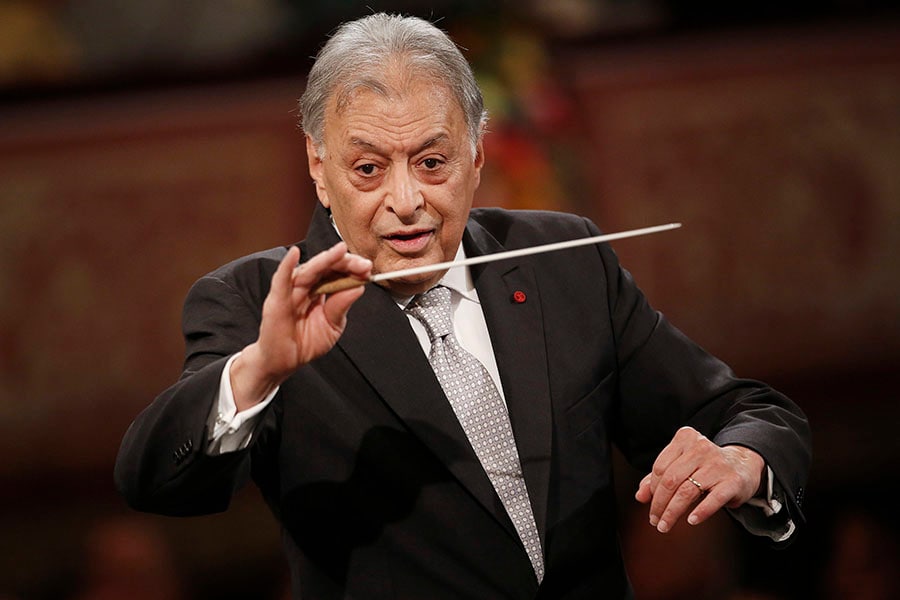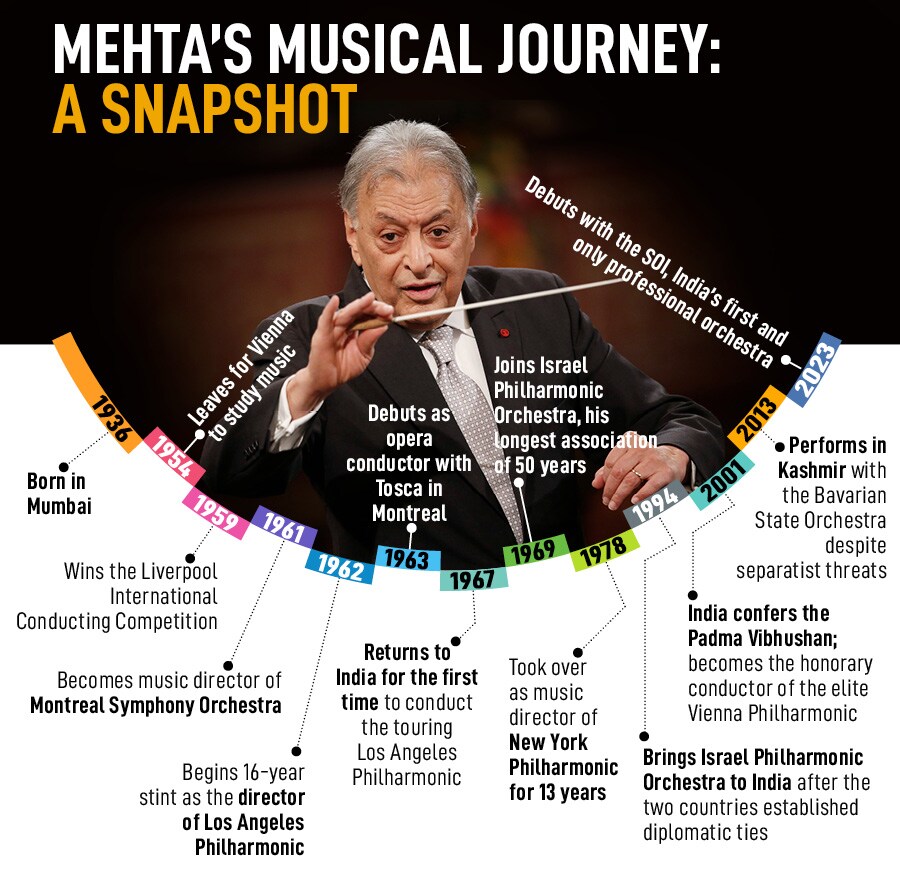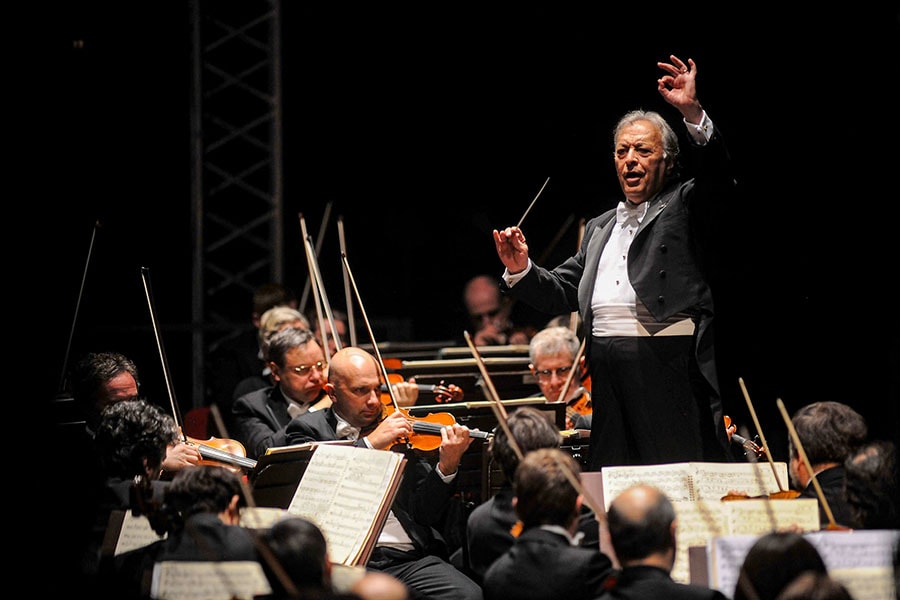
His Maestro's Voice: At 87, conducting legend Zubin Mehta makes a debut
Mehta, who was born in Mumbai and later trained in Vienna, will, for the first time, conduct the Symphony Orchestra of India, the country's first and only professional orchestra
 (File) Zubin Mehta conducts the Orchestra del Maggio Musicale Fiorentino in Bologna, Italy, in 2014 Image: Roberto Serra - Iguana Press/Getty Images
(File) Zubin Mehta conducts the Orchestra del Maggio Musicale Fiorentino in Bologna, Italy, in 2014 Image: Roberto Serra - Iguana Press/Getty Images
Zubin Mehta isn’t a big fan of the changing face of Mumbai. “My city has changed a lot, and I don’t like any of that,” says the venerated conductor who grew up in Cuffe Parade in the 1940s.
But Mehta isn’t bitter about it either. “What can you do?” says the 87-year-old who now lives in Los Angeles with his wife, former actor Nancy Kovack, in a villa that was once owned by Steve McQueen. “When I was here, there were two and a half million people, now there are 18 million. That's the way all cities change, and you can’t just criticise.”
There is one change to the cityscape, though, that Mehta quite digs—one that came through Khushroo Suntook, his friend of 80 years, as he points out, since they sat together as first standard students at Campion School in 1943. In 2006, Suntook, now the chairman of the National Centre of Performing Arts (NCPA), founded the Symphony Orchestra of India (SOI), the country’s first and only professional orchestra. Mehta, who has led some of the world’s most prestigious orchestras, including the Israel Philharmonic for 50 years till 2019, will debut with the SOI in its 17th year, marking a homecoming of sorts for the Bombay boy who left the city in 1954 to go to Vienna to study music.
The two concerts, both sold out, will be performed at the NCPA in association with the Mehli Mehta Music Foundation (MMMF), a premier music education school named after his father, on August 19 and 21. They will also kick off the Autumn 2023 season of the SOI, which has been growing in stature over the years, touring internationally and also grooming a kids’ orchestra. “The concerts will be simulcast at the Tata Theatre next door for those who haven’t been able to score a ticket,” says Suntook.
“I can’t say how pleased I am to conduct the SOI,” Mehta told a select media gathering ahead of the event. “I didn't expect the quality that I have experienced in the last few days at rehearsals. I hope I can come back very soon.”










